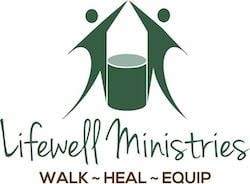Ten New Years To-Do’s to Start the New Year Off Right

Ten tasks/to-do’s to start the year off right and head towards financial success:
Your exact resolutions will depend on you, but if you’re looking for ideas, I suggest zeroing in on a few key areas.
- Reassess your Budget:
All financial resolutions start with getting a handle on where your money is going. That’s how you see where cash can be freed up for your other goals. Another golden rule of financial security is to make sure your monthly spending is less than your monthly income. Your needs may have changed and need adjusted since last set your budget (first things first, if you don’t have a budget, you need one!).
Make a list of all your regular bills such as your mortgage or rent, insurance, cell phone and utilities. Look at a few recent months of credit card and bank statements to see what you’re spending on food, healthcare, subscriptions and other expenses, that at times are hard to keep track of. Are all the expenses essential, a priority and/or needed? It’s easy for things we don’t value to get added onto our budget over time without us realizing it. Look for places to cut: small items that add up, recurring charges for services you no longer need, or big changes that could have a major impact.
One way to sabotage your financial goals is to not plan ahead for any big expenses, such as a vacation or a home remodel. Consider how you will handle this extra spending. If you are borrowing the money, factor in how those repayments will affect your current spending and perhaps require cuts in other areas.
- Pay down debt:
You can never go wrong with eliminating high-interest-rate debt, like revolving balances on a credit card, but don’t forget about refinancing long-term debt, like a mortgage. Refinancing at today’s low rates should reduce your monthly payment, leaving you with extra cash to pay down more costly debt and save more for retirement. Once debt is paid down, you roll that money that were using towards debt, to now go towards retirement funds.
- Revisit your investment strategy:
Of all the tasks related to financial security, one of the most important is to save more for that time when earnings stop coming in. Having that correct, balanced plan with the proper investment vehicles in place is critical, so you can cover your base expenses in retirement.
Review your monthly retirement contributions. Can you increase the amount you contribute each month? I encourage you to take advantage of any employer matching funds. However, once you reach the match percentage, any amounts above that, let’s put your money to work for you in better investment vehicles.
You probably know to rebalance your portfolio at least once a year according to your target allocation of stocks and bonds. But how often do you consider other portfolio goals? If you’re not on the road to generating enough retirement income, maybe you need a new strategy, like annuities (for guaranteed retirement income), more dividend stocks, permanent life insurance (has cash value with tax advantages), or utilizing an HSA account if available, among other options.
You should always also be on the lookout for tax-minimizing opportunities, such as harvesting investment losses to offset upcoming capital gains.
- Consolidate and simplify:
You may have accumulated a variety of retirement accounts from former employers through the years. Track down those accounts and make a list. There are benefits to consolidating them into one account. You will save money on fees those accounts charge that are significant over time and the fees are higher when you are no longer an employee. It will also be easier to manage, as well as keep track of required minimum distributions (RMD’s) when you retire. I am a big proponent of consolidating these accounts. It will save you money and headaches.
- Update your insurance:
The new year is an ideal time to review your auto and home insurance policies. Things change throughout the year that could impact your coverage needs. If you put in a new roof or bought some expensive jewelry, for example. Also house values have been rising significantly, make sure your policy has the correct amount of coverage to rebuild your home, should anything happen, so you are not left having to make up the difference yourself out of pocket. Meet with your agent to make sure your policy protects those purchases, check to make sure you have the proper coverage on auto and home and that you’ve qualified for all possible discounts.
Take a video inventory: Make a video with your smartphone of everything in your home. Narrate while tapping to give context and to highlight things of value. Open drawers and closest, make sure it is all accounted for, so later you are not trying to guess. Then save the file online for safe keeping, in case you have a claim.
- Review your estate plan:
If you don’t have one already, creating an estate plan would make a fine New Year’s resolution “task”. An estate plan should include a will, a living will and a financial power of attorney. If you already have an estate plan, update it to reflect any recent changes in your life, like kids moving out or your latest grandchild and check that your life insurance policy and retirement plan list the correct beneficiaries.
- Find Tax Smart ways to give:
Doing OK financially? Take advantage of giving strategies that may benefit you at tax time. Though you usually need to itemize to deduct charitable contributions, a special rule let’s nonitemizers deduct $300 in cash donations (or $600 per couple) in 2021. If you itemize deductions you don’t have these limits and can deduct greater cash amounts per donation. If you’re at least 70 ½, you can also save on tax by making donations directly from a traditional IRA.
- Clear out your flexible spending accounts:
If you contribute pretax money to a healthcare flexible spending account (FSA) at work, you may lose your money you haven’t used by the end of the year. Government rules permit your employer to either give you until March 15 to use your 2021 money or let you carryover up to $550 in unspent account money to 2022. COVID era legislation allows you more flexibility, such as letting you spend the money on over-the-counter medications, not just prescription drugs. So ask your employer about your accounts current rules and deadlines, and make plans to spend any remaining money perhaps updating your eyeglasses, buying medical equipment, or getting physical exams.
If you have an HSA account instead of an FSA, then you can leave and encouraged to leave the money in the account. You can also direct funds in an HSA to be invested.
- Increase income:
Some people pledge to generate new income by finding a higher-paying full-time job or having a side gig that you are passionate about. If you’re already retired cam increase income by taking on part-time work, you just have to be aware of the impacts it can have on taxes and your social security benefits.
- Reassess your Priorities:
Your life goals and/or financial goals may have changed. I recommend creating a list of goals you want to accomplish in 2022 and beyond. Organize them into four different categories: relationships, wellness, interests and work. Now you are ready to apply the financial planning “to do’s” that will help you realize your goals. When we have clarity regarding what is most important to you in life, your financial decisions can become easier and clearer.
Contact me with any question, we are happy to help!
#RetireHappy






